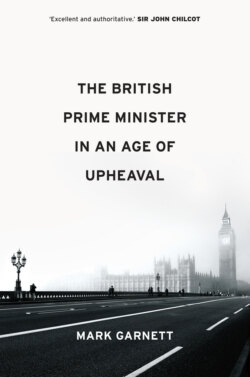Читать книгу The British Prime Minister in an Age of Upheaval - Mark Garnett - Страница 11
1 Majority leader
ОглавлениеParliament – and more specifically the House of Commons – is a convenient place to start an exploration of the Prime Minister’s role. In his great 1867 study of the ‘English’ constitution, Walter Bagehot depicted the Commons as a glorified electoral college: its members chose the Cabinet, which in turn nominated one individual to serve as head of the government (Bagehot, 1963, 150–2). In Bagehot’s day, MPs were relatively free from party discipline, and the requirement that the Prime Minister should be able to muster a majority in the Commons meant that proven parliamentary performers (even if they happened to be members of the House of Lords, in those days before its powers were curtailed) enjoyed a considerable advantage when the ‘electoral college’ made its choice.
In the past, Prime Ministers tended to be chosen because they commanded the confidence of the Commons. Now, when Prime Ministers command the confidence of the Commons they do so because they are Prime Ministers. The purpose of this chapter is to examine the changing relationship between Prime Ministers and the Commons in recent decades, and the way in which the ‘majority leader’ is selected today.
